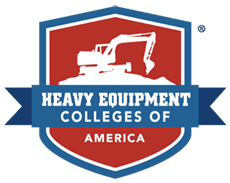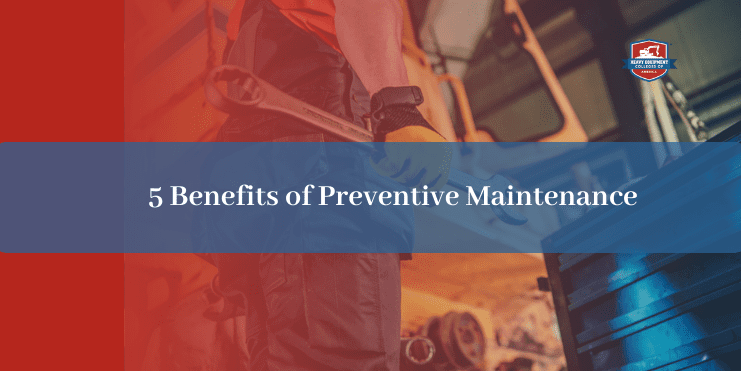Poor maintenance is a leading cause of equipment failures, worker injuries, and worker deaths in the construction industry. That’s why preventative maintenance is key to the performance and longevity of heavy equipment as well as the safety of heavy equipment operators.
Want to know how you can perform effective maintenance? Keep reading to find out.
Table of Contents
What Is Heavy Equipment?
Heavy equipment refers to the machines used in the construction, transportation, and agricultural industries—among others. Below are some of the most common types of heavy equipment and the functions they perform.
Equipment
Functions
- Bulldozer
- Excavator
- Crane
- Backhoe
- Grader
- Trencher
- Digging
- Lifting
- Trenching
- Leveling
- Excavating
- Drilling
Why Construction Equipment Maintenance Is Essential
If you want to a) ensure your heavy equipment reaches or exceeds its life expectancy and b) protect your workers from injury, routine maintenance is essential. Simple preventative maintenance performed on heavy equipment helps:
- Reduce wear and tear
- Prevent breakdowns
- Enhance equipment longevity
- Prolong the need for repairs and replacements
- Save you money by minimizing repair, replacement, and labor costs
Our Reviews:



Top 5 Benefits of Preventive Maintenance
1. Catch Problems Early
If you never perform equipment maintenance, you may not learn about underlying issues until it’s too late. Do the smart thing and maintain your equipment to save both time and money. Instead of having to replace an entire piece of heavy equipment—which is expensive—you can perform a few simple repairs for a fraction of the cost.
2. Reduce Fuel Waste
Heavy equipment that doesn’t undergo routine maintenance checks requires more fuel because it doesn’t operate at peak efficiency. While the cost may not seem significant for one piece of equipment, it adds up when you consider fuel costs for a fleet of heavy equipment.
By performing routine maintenance, you ensure that your heavy equipment continues operating at peak efficiency on minimal amounts of fuel. This will save you money over time that can be invested in additional personnel and resources.
3. Minimize Repairs
When you frequently check your equipment, you catch problems in their early stages before they cause serious damage. This helps extend the longevity of various components, which means you can repair equipment less frequently.
4. Protect Employees
Failure to maintain construction equipment puts workers and bystanders at risk. Well-maintained heavy equipment enhances worker safety by reducing workplace risks.
Maintaining your equipment also protects your reputation as an OSHA-compliant employer and helps you avoid litigation due to negligence. If an accident occurs on your job site due to preventable equipment malfunction or failure, you’ll be held liable.
5. Increase Equipment Lifespan
As we’ve already discussed, routine maintenance keeps components in prime condition so they last longer. The better shape your equipment is in, the fewer repairs and replacements it will need over time. This will save you time and money in the long run, helping you to achieve maximum value for your investment.
Industry Best Practices for a Thorough Heavy Equipment Inspection
Keep these best practices in mind when performing equipment maintenance.
- Implement realistic maintenance practices
- Prioritize the most important tasks
- Carefully monitor all equipment inspections
- Utilize maintenance software to simplify maintenance management
Here’s what you should check.
Daily
- Fuel tank
- Brakes
- Headlights and brake lights
- Windscreens
Frequently (but not daily)
- Engine oil levels
- Engine coolant levels
- Hydraulic oil levels
- Hydraulic system and filters
- Fuel delivery system
Battery - Belt-driven components
- Potential leaks
- Potential rust or damages
How Technology Improves Equipment Maintenance
If you operate a construction site, you’re likely managing various pieces of heavy equipment at any given time. That’s a lot for one person to keep up with. Thanks to modern maintenance software that’s designed to enhance equipment performance and safety, you can streamline the maintenance planning and implementation process.
This technology enables you to maintain your fleet of heavy equipment at the touch of a button. You and your workers can easily:
- Schedule maintenance appointments
- Send automated maintenance reminders
- Log maintenance completion
- Request repairs or service parts
North America’s Premier Heavy Equipment School
Are you ready to start your career as a heavy equipment operator? Enroll in a heavy equipment training program at Heavy Equipment Colleges of America (HEC). Our comprehensive training programs cover everything from equipment operator to equipment maintenance and everything in between. Plus, you can complete them in as little as three weeks.
Don’t wait to take your career to the next level. Find a location near you, and start the enrollment process today.

